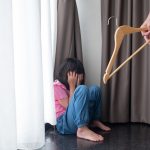
All Wheezes Are Not Asthma in Children by Dr. Srikanta J T
7 min readWritten by Sindhuja Prabhu


When a child struggles to catch their breath, it can be scary for not just the parent but for anyone and everyone. Breathing comes naturally to all living beings. A child should breathe normally and freely when they are playing or just carry on with their activities. They should not struggle or make a noise when they breathe in or out.
Wheezing is not an uncommon phenomenon in children. Many children have wheezing. Some get well in a few years and for some; they just learn to live with it. Just because a child is wheezing, doesn’t mean they need to have asthma. All wheezes are not asthma in children. Come, let’s find out more about wheezing in children.
In This Article
- What is Wheezing in Children?
- Signs and Symptoms of Wheezing in Children
- What is Asthma in Children?
- Signs and Symptoms of Asthma in Children
- How to Tell if My Child’s Wheezing is Asthma or Not?
- When to Take Your Child to The Doctor?
- Can Childhood Asthma be Cured?
- FAQ’s
What is Wheezing in Children?
When a child’s airway is too small, they struggle to breathe normally. It can result in a high-pitched whistling sound as they breathe out, called wheezing. If you pay close attention, the noise will come from their chest rather than their nose, which happens when they have a cold or a nose block.
Some of the reasons for wheezing in children can be
- Lower respiratory infections including infections such as RSV (Respiratory Syncytial Virus).
- Choking, when your child has something stuck in their nose or airway.
- Swelling in the mucosal lining due to severe cold or allergic reaction.
- Bronchospasm or swelling due to irritation in the airway.
- Inhalation of foreign particles that can either block or irritate the nasal lining.
- Excess secretion of mucous.
- Croup or an infection to the upper airway that can cause swelling in the windpipe and bronchial tubes.
- Gastro-oesophageal reflux or acid reflux that rises from the stomach and affects the throat. It can be a medical condition by itself or due to indigestion.
- Secondary smoking, meaning a constant exposure to parents or other adults smoking around them.
- Seasonal infections due to exposure to something in the environment that is seasonal. This type of wheezing will subside once the weather changes.
It is important not to confuse a wheeze with breathing difficulty caused by a blocked nose or cold. A runny nose or blocked nose can make it difficult to breathe as well as cause noise during breathing. Wheezing is more severe and recurrent than just a nose block.
Signs and Symptoms of Wheezing in Children

It is quite common to fear the worst when a child is unwell. Wheezing can be easily mistaken for asthma. Wheezing is in fact a strong symptom of asthma. So, it is important to distinguish your child’s wheeze. You need to identify if it is asthma or a viral wheeze.
A viral wheeze will present itself when your child has a severe cold or chest congestion. A severe cold, nose block, runny nose, fever, or various other triggers can cause:
- Whistling like noise starting from the chest, when your child is breathing out
- Tightening feeling in the chest during exhalation
- Shortness of breath
What is Asthma in Children?
Asthma in children is similar to asthma in adults. It is a condition where the child is unable to breathe freely. Exposure to certain triggers will cause inflammation of the child’s airways and even lungs.
It can be difficult to determine if the breathing difficulty your child is experiencing is just a wheezing episode, choking, or asthma. Periodic and long-lasting wheezes are typical symptoms of asthma.
The exact cause of this severe respiratory problem is not known. It could be environmental triggers, genetics, or a combination of both.
[Read : Asthma in Toddlers: Symptoms and Treatment]
Signs and Symptoms of Asthma in Children

A cold or cough is very common in young children. Asthma is more than just a cold. Some of the symptoms you need to watch out for are:
- Frequent coughs that seem to worsen with a cold or viral infection.
- Excessive cough due to exercise or exposure to cold air.
- Cough that seems persistent and doesn’t go away.
- Wheezing or whistling sound during exhalation.
- Shortness of breath or difficulty in breathing freely.
- Tightening of the chest during exhalation.
- Delay in recovering from a respiratory infection.
- Regular or frequent wheezing without a cold or viral infection.
- Difficulty or trouble sleeping due to breathing issues.
- Rapid breathing.
- Difficulty in eating and swallowing is sometimes accompanied by grunting.
- Feeling tired and weak due to insufficient breathing.
- Low energy during sports or play; the child might even refuse to play.
- Allergic reaction to pollen, mold, and other environmental factors.
[Read : Common Indoor And Outdoor Allergens in Children]
How to Tell if My Child’s Wheezing is Asthma or Not?
So, your child is having difficulty breathing. You hear that tell-tale whistling sound when your child breathes. Could it be asthma or is it just a regular wheeze? Here is how you can differentiate between the two:
- If the wheezing occurs only during a viral infection, cold, or fever and subsides as the infection clears out, indicates a viral wheeze.
- If the wheezing occurs frequently, without any trigger, it indicates a problem in the lungs. Doctors don’t generally diagnose breathing trouble as asthma until the child is at least a year old. It takes about a year for their airways to fully develop. Only after this can a doctor check for narrow passages that are resulting in breathing issues. For some children, a confirmed diagnosis is not possible until they are 5 years old.
When to Take Your Child to The Doctor?

If you notice the following in your child, rush them to a doctor or at least call your doctor immediately. Following medical advice is important here.
- Your child is unable to breathe or has difficulty breathing.
- The breaths are irregular or rapid.
- Noisy cries even when not crying.
- They turn blue due to a lack of oxygen.
- Unable or refuses to eat or drink.
- Tired more than usual.
- Fever along with breathing difficulties.
- If they are choking on something and you are unable to dislodge the foreign item.
- Foreign particles stuck in the nose, causing breathing difficulties.
If your child suddenly has an asthma attack due to some triggers in their environment, follow the procedure your doctor has taught you. If it is a severe attack, it is advisable to get it checked even if you are able to get everything under control.
Can Childhood Asthma be Cured?

Unfortunately, not all children with pediatric asthma can be cured. For some children, asthma can get better and clear itself by the time they are 5 to 11 years old. In most cases, even this is due to an effective asthma action plan that the parents and the doctor come up with, based on various symptoms and triggers in the child.
Once the doctor and the parents are able to identify the triggers and control them effectively, they can frame a long-term plan.
The doctor will prescribe maintenance medications such as:
1. Inhaled Corticosteroids
These are anti-inflammatory drugs that doctors prescribe for long-term use. They help in controlling asthma and ensuring a wheeze does not become an asthma attack.
2. Leukotriene Modifiers
These can be used individually or in combination with other medications for asthma. A possible side effect of this medication is psychological reactions. If you notice your child is having a psychological reaction to the drug, rush them to the doctor immediately.
3. Combination Inhalers
These inhalers use a combination of Corticosteroids in inhaling form and long-acting beta-agonist (LABA), to reduce the risk of severe asthma. However, the LABA should always be given in a combination only and never alone as it can worsen the asthma attack.
4. Theophylline
A daily medication that can help open up the airways. However, doctors don’t prescribe this medicine as frequently as they used to.
5. Biologics
In case of severe asthma, the doctor might give the Nucala injection every four weeks. It can help children above the age of six when combined with their asthma maintenance plan.
Any breathing issue in a child is concerning. While wheezing can be temporary and occasional, asthma is a more severe kind of infection. You need to find a good doctor who can help your child with their asthma and come up with an effective maintenance plan.
If your child is having difficulty breathing normally, don’t immediately fear the worst or assume it to be asthma. Get a medical opinion after taking the tests concerned. It could be a wheeze that needs just a simple medicine and nothing long-lasting.
[Read : Biologics For Autoimmune Diseases]
FAQ’s
1. Does Wheezing Mean Asthma?
No, all wheezes are not necessarily asthma. A child can have a simple viral wheeze due to a cold or a nose block. A viral wheeze can return every time your child gets a cold.
2. What Causes an Asthmatic to Wheeze?
A blockage in their airway can make it difficult to breathe. This can be due to severe colds, environmental triggers, or even coughs.
3. What is The Difference Between Asthma And Wheezing?
Wheezing is a strong symptom of asthma. While wheezing is less severe and can be seasonal, which will go away on its own; asthma is more severe. Asthma is recurrent in nature and does not have a permanent cure.
Read Also: Breathing Problems In Children – Causes And Symptoms

Sindhuja Prabhu,M.Sc (Psychology),PGDBM
Sindhuja, a mother of two, is an obsessive mom with a keen interest in psychology, especially child psychology. Her quest for knowledge and way with words led her to become a passionate content writer. She transformed her love for writing into a full-fledged career which incidentally also turned up being the perfect stress buster for the last 5 years.Read more.
Responses (0)
Want curated content sharply tailored for your exact stage of parenting?
Related articles

Top 20 ‘What Am I’ Riddles For Kids With Answers

Spanking Kids – Good or Bad? Exploring the Controversy

Top 100 Friendship and Learning Quotes For Preschoolers

Slapped Cheek Syndrome(Fifth Disease) in Children – What is it, Symptoms and Tips to Prevent

Enema For Children – Is it Safe?

Hematuria (Blood in Urine) in Children – Causes, Symptoms and Treatment
Sponsored content
Discover great local businesses around you for your kids.
Get regular updates, great recommendations and other right stuff at the right time.





